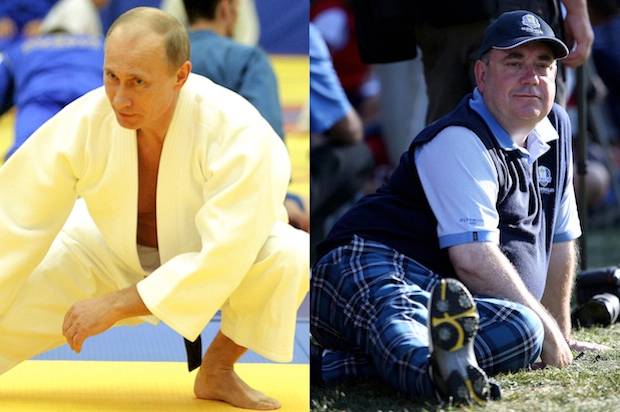Alex Salmond was criticised in the spring for endorsing certain admirable qualities in Vladimir Putin. Salmond told GQ magazine that Mr. Putin had ‘restored a substantial part of Russian pride and that must be a good thing.’
He was quick afterwards to lament that Russia’s record on human rights needed improvement and to express solidarity with Ukraine, but as time goes on the parallels between Salmond and Putin seem to go deeper. Both bank on presiding over economies that are currently cash-rich from oil and gas – resources whose future may be shaky in the long term. And they both argue that Western military action in Syria or Iraq is wrong without the sanction of the UN Security Council. Moreover, they have arguably both created a political career out of stoking, and indeed creating, a sense of renewed national pride and jingoism among their respective domestic populations.
For both men, being noticed on the international stage and being seen to possess a distinctive national identity are more important than some of the difficult consequences – like potential political isolation – that inevitably result. The comparison may seem fanciful, bearing in mind Mr. Putin’s socialist agenda is not as radical as Salmond’s. But their common strategy is to tell their supporters that the rest of the world doesn’t accord their country sufficient respect. And both continually point to an external aggressor (in Salmond’s case Westminster) as the root cause of all of their problems. That’s a winner. And, whether Westminster, (or in the case of President Putin – the West) like it not, that is a message that strikes a chord. Dismissing such narrow nationalistic fervour as somehow ‘primitive’ may make those outside Scotland and Russia feel morally superior, but when the prize is say Crimea, or indeed Scotland, do these proud nationalist leaders give a fig?






Comments